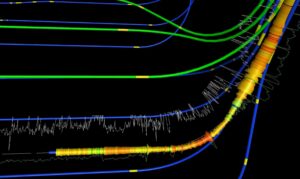
Menu
OrientMCT
Data Analytics for Drilling Optimization

The Data Analytics for Drilling Optimization course is designed to provide participants with the knowledge and skills to leverage data analytics techniques and tools to optimize drilling operations in the oil and gas industry. This course focuses on the application of data analytics to analyze drilling data, identify patterns, and make data-driven decisions to enhance drilling efficiency and performance.
Throughout the course, participants will learn about the key concepts and principles of data analytics and how they can be applied specifically to drilling operations. They will be introduced to various data sources, such as drilling logs, real-time sensor data, and historical drilling data, and understand how to collect, clean, and preprocess these datasets for analysis.
Participants will gain proficiency in using statistical and data visualization techniques to analyze drilling data. They will learn how to identify trends, patterns, and anomalies in the data, which can provide insights into drilling performance, tool wear, and wellbore conditions. Participants will also learn how to interpret data visualizations and statistical metrics to draw meaningful conclusions and make informed decisions.
The course will cover predictive analytics methods, where participants will learn how to build models that can forecast drilling parameters, such as rate of penetration (ROP), drilling fluid properties, and tool performance. Participants will explore machine learning algorithms and techniques that can be applied to drilling data, including regression, classification, and clustering algorithms.
Participants will also learn about real-time data analytics and how it can be used to optimize drilling operations. They will understand how to set up real-time monitoring systems, utilize streaming data, and implement automated decision-making processes based on real-time insights.
Safety is a critical aspect of drilling operations, and the course will emphasize the importance of integrating safety considerations into data analytics processes. Participants will learn how to identify safety-related patterns and anomalies in the data and develop predictive models to anticipate and prevent potential safety hazards.

By the end of the Basic Drilling Technology course, participants will have a solid foundation in drilling principles and practices. They will be equipped with the knowledge to understand drilling terminology, interpret drilling data, and identify potential challenges in drilling operations. This course serves as a valuable starting point for individuals seeking to pursue a career in the oil and gas industry or those looking to enhance their knowledge in drilling technology.
Get In Touch!
Contact us for a quote or in case of any urgent queries please send us an email on: [email protected]
we will get back to you right away!